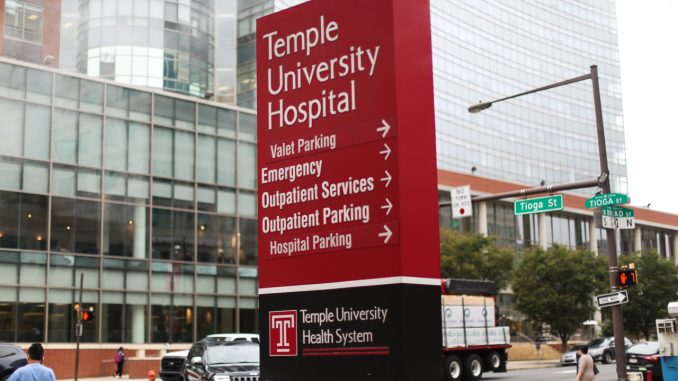
Temple University Hospital’s top executive joined the advisory committee for the Philadelphia nonprofit attempting to open the city’s first comprehensive user engagement site, or a safe injection site.
Temple University Health System President and CEO and Katz School of Medicine Dean Larry Kaiser joined the advisory board for Safehouse, a group of Philadelphia leaders that plan to develop the site, which aims to provide overdose prevention and treatment services and a safe place for people to use drugs medical supervision.
A spokesperson from TUH did not respond to multiple requests to comment on Kaiser’s involvement in Safehouse’s advisory committee.
Philadelphia health officials announced in January that they will allow the opening of a safe injection site, but they will not fund it, the Inquirer reported. Safehouse is backed by former Philadelphia mayor and Pennsylvania Gov. Ed Rendell, who once legalized the needle exchange program Prevention Point when he was the mayor in 1992.
With backing from Rendell and the incorporation of the nonprofit, the organization can take more concrete steps toward its plan to open the first safe injection site in the nation. Such sites are illegal under federal law.
Safe injection sites have operated throughout Europe, Australia and Canada. Preventing overdoses and connecting people to treatment services are the main objectives of safe injection sites.
Some who oppose the sites argue they will increase drug use, but a 2014 review of 75 studies refuted that claim. The Drug and Alcohol Dependence journal concluded safe injection sites help people obtain primary health services that can help them into long-term recovery from addiction.
More than 1,200 people died from a drug-related overdose in Philadelphia in 2017, according to a release from the city’s Department of Public Health. Gov. Tom Wolf declared the opioid epidemic a disaster emergency in January 2018.
“We believe that if we can provide a safe [injection site], where consumption can be supervised, we can prevent some of those fatalities,” said Ronda Goldfein, vice president of the board of directors for Safehouse.
“Having eyes on a person is the best way to get them quick and efficient emergency attention,” Goldfein said. “What we are doing now is not working. If we can prevent fatalities, shouldn’t we try?”
The first safe-injection site will most likely be in Kensington, the center of the city’s opioid epidemic and the area with the highest overdose death rate in Philadelphia, the Inquirer reported. On Oct. 3, Mayor Jim Kenney signed an executive order that declared a disaster in Kensington.
Apart from medical supervision and harm reduction, the site would decrease drug use in open areas, the Inquirer reported. People who might not have stable housing would have access to a safe space to use drugs without risking being seen by children.
“The situation is a matter of emergency, and I know the opening of a safe-injection site is incredibly controversial,” said Gerald Stahler, a geography and urban studies professor and member of Temple’s Task Force on Opioid and Related Drug Addiction and Recovery Support. “The results of the research have been very consistent. It doesn’t seem to increase drug use. What happens is, a lot of users get access to medical care and end up going into treatment.”
“The site will help address issues of people using in public spaces, and it will reduce sights of dirty needles laying on the streets, but the bottom line is that it will help to save lives,” he added.
Safehouse will provide clean needles and equipment and fentanyl testing strips. Fentanyl is a powerful synthetic opioid that is 50-100 times stronger than morphine found in contaminated heroin. Testing for fentanyl is a crucial precaution to prevent overdose. Safehouse staff would not provide drugs or aid in injection.
“A few years ago, I’m not sure how I would have felt about a [safe injection site] in the city,” Stahler said. “But given what has been going on now, I’m proud of Philadelphia for trying to forge ahead with this establishment where lives can be saved.”



Be the first to comment